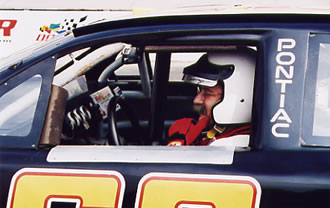 | |
| { On Being a Daughter } story and photos by Jessica Knight
Last week, a friend who is considering buying a new car asked me to take him out for a driving lesson. We sat in my car in Homewood Cemetery, and I found myself saying things like, "Okay, just rev the engine and listen, just try to get a feel for it," and "A little more gas, more gas." I could hear myself slipping into character, taking on my father's quiet demeanor and calm voice. By the time we left the cemetery, he was driving, maybe not quite like a racecar driver, but he was driving. My dad would have been proud. | |
 When I was sixteen, my father taught me how to drive a manual-transmission car. He insisted that I understand the mechanics behind the transmission—how pushing in the clutch disengages the gears, how shifting from one speed to another engages a different sized gear, which in turn affects the power and speed of the car. We sat in the driveway in neutral for ten minutes, where he had me rev the engine to "get a feel for it." And I listened, trying to hear whatever music put that half-smile on his face. When we finally went out on the road, he was able to maintain the same sort of analytical calm that he always has, even in the face of the violent bucking of his beloved car as I attempted to coax it into motion. Quietly: "Give it more gas, more gas," or, "Okay, push in the clutch, push in the clutch."
When I was sixteen, my father taught me how to drive a manual-transmission car. He insisted that I understand the mechanics behind the transmission—how pushing in the clutch disengages the gears, how shifting from one speed to another engages a different sized gear, which in turn affects the power and speed of the car. We sat in the driveway in neutral for ten minutes, where he had me rev the engine to "get a feel for it." And I listened, trying to hear whatever music put that half-smile on his face. When we finally went out on the road, he was able to maintain the same sort of analytical calm that he always has, even in the face of the violent bucking of his beloved car as I attempted to coax it into motion. Quietly: "Give it more gas, more gas," or, "Okay, push in the clutch, push in the clutch."